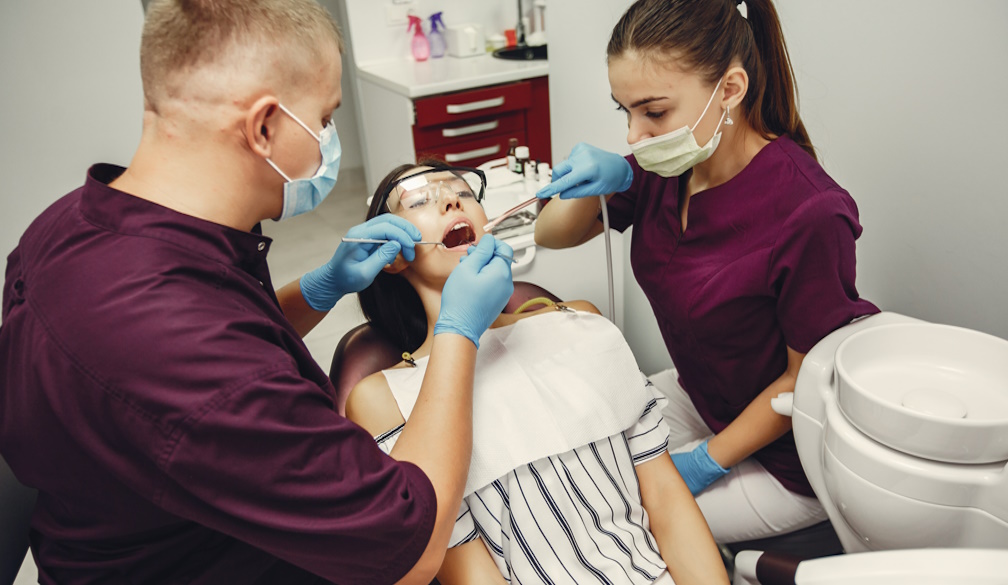Emergency Dentist Melbourne: Fast, Reliable Care When You Need It Most
- Written by Daily Bulletin

Dental emergencies can strike when you least expect them — a sudden toothache, a broken filling, or an accident that chips a tooth can happen at any time. In these stressful moments, having access to a trusted emergency dentist Melbourne patients can rely on makes all the difference. Whether it’s day or night, professional emergency dental care ensures immediate relief, expert treatment, and long-term protection for your smile.
Understanding What Qualifies as a Dental Emergency
A dental emergency is any situation involving severe pain, bleeding, swelling, or damage that requires prompt attention. Common emergencies include broken or knocked-out teeth, infections, abscesses, lost fillings, and injuries to the gums or jaw. Even if symptoms seem minor, delaying treatment can lead to complications such as infection or tooth loss.
An emergency dentist is trained to handle these urgent situations with precision and care. Their goal is to relieve pain quickly, prevent further damage, and preserve your natural teeth whenever possible.
Why Immediate Treatment Is So Important
Dental emergencies are time-sensitive. Acting quickly can often mean the difference between saving or losing a tooth. For example, if a tooth is knocked out, it can often be reimplanted if treated within 30 to 60 minutes. Similarly, infections that start as minor toothaches can rapidly worsen if left untreated, spreading to surrounding tissues and causing severe discomfort.
Seeking help from an emergency dentist Melbourne immediately ensures that pain is managed and the issue is properly diagnosed before it escalates. Early intervention not only protects your teeth but can also save you from extensive and costly procedures later on.
Common Dental Emergencies and How They Are Treated
Different dental emergencies require different types of treatment. Here are some of the most common situations and how emergency dentists address them:
Severe Toothache: Persistent pain may indicate infection or nerve damage. The dentist examines the tooth, takes X-rays, and may recommend a root canal or other treatment to remove the infection and relieve discomfort.
Knocked-Out Tooth: If the tooth is still intact, it can often be saved if handled properly and brought to the dentist immediately. Emergency dentists clean and reinsert the tooth into its socket before stabilising it with a splint.
Broken or Chipped Tooth: Depending on the extent of damage, the tooth may be repaired with bonding, a crown, or veneer. If the break is deep, root canal therapy may be required.
Lost Fillings or Crowns: Exposed areas can cause sensitivity and discomfort. Dentists can replace or reseal the restoration to protect the tooth structure.
Swelling or Abscess: Infections in the gums or root of the tooth require urgent care to drain the abscess and eliminate bacteria. Antibiotics may also be prescribed to prevent the infection from spreading.
Advanced Technology for Accurate Diagnosis
Modern emergency dental clinics in Melbourne are equipped with state-of-the-art diagnostic tools to provide accurate and efficient treatment. Digital X-rays, intraoral cameras, and 3D imaging help dentists quickly identify the cause of pain and develop an effective treatment plan.
This technology allows for precise diagnosis with minimal discomfort, ensuring that patients receive the right treatment in the shortest possible time.
Pain Management and Patient Comfort
Dental emergencies can be distressing, especially when accompanied by pain or anxiety. Emergency dentists use advanced anaesthetic techniques and gentle approaches to make treatment as comfortable as possible. Sedation options are also available for patients with high levels of anxiety or extensive treatment needs.
The goal is not just to stop the pain but to ensure the patient feels calm and cared for throughout the entire process.
Aftercare and Follow-Up Treatment
Once immediate care has been provided, follow-up treatment may be needed to restore full function and aesthetics. For example, a tooth that’s been repaired after trauma may later need a crown, while a treated infection may require additional cleaning or a filling.
A dedicated emergency dentist Melbourne ensures continuity of care by scheduling follow-up appointments and monitoring recovery. This holistic approach ensures that both immediate relief and long-term dental health are achieved.
Preventing Future Dental Emergencies
While accidents can’t always be avoided, many dental emergencies can be prevented through good oral hygiene and regular check-ups. Routine examinations help identify early signs of decay, weakened restorations, or gum disease that could lead to future problems.
Wearing a custom mouthguard during contact sports, avoiding hard foods that can crack teeth, and not using your teeth to open packaging are simple but effective ways to reduce risk.
Maintaining regular dental visits also ensures your dentist can detect and address issues before they turn into emergencies. Prevention and early care are always less stressful and more affordable than urgent treatment.
Why Choose a Local Emergency Dentist
Having a trusted emergency dentist nearby offers peace of mind. Local clinics in Melbourne are equipped to handle urgent cases and often provide extended hours or weekend availability. This convenience means that no matter when a problem arises, you have access to prompt professional help.
Local dentists also understand their community’s needs and build strong relationships with patients over time. This familiarity creates a sense of trust and comfort, especially during high-stress situations.
Comprehensive Care Beyond Emergencies
A good emergency dentist doesn’t just focus on short-term fixes — they also provide ongoing preventive and restorative care. Once the immediate issue is resolved, they assess your overall oral health to prevent future emergencies.
Comprehensive services may include fillings, crowns, root canals, extractions, and cosmetic enhancements. This full range of treatment ensures your smile stays healthy, strong, and beautiful for the long term.
Conclusion
When dental pain or injury strikes unexpectedly, having access to a reliable emergency dentist Melbourne residents trust can make all the difference. Prompt, professional treatment not only relieves discomfort but also prevents complications and saves your natural teeth. With advanced technology, gentle care, and a commitment to patient comfort, Melbourne’s emergency dental services provide the immediate attention and long-term solutions you need.




